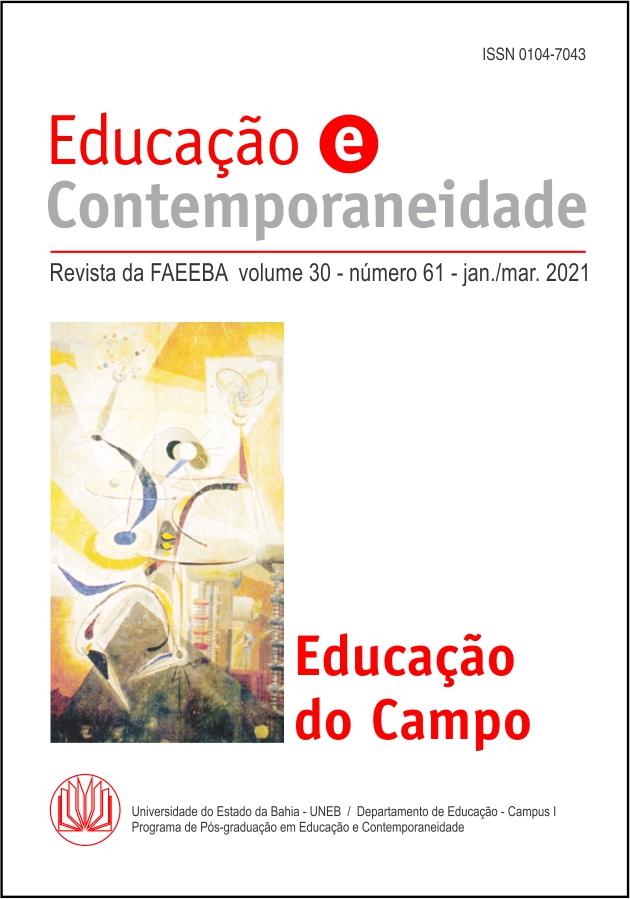Educação do Campo, Território e a Escola da/na Ilha no Litoral do Paraná
DOI:
https://doi.org/10.21879/faeeba2358-0194.2021.v30.n61.p233-252Keywords:
Educação no território; Escola do campo da/na ilha; Litoral paranaense.Abstract
It presents research on the relations between the Education of the Field, the Territory and the school on / of the island in a traditional community on the coast of Paraná. It aims to understand the meaning that education and school in the countryside on / of the island have for communities on the coast of Paraná in relation to the territory. The theoretical and methodological path assumes the dialectical conception of knowledge and uses techniques and procedures relevant to the methodological focus of the ethnographic research approach. Performs participant observation, record in the field notebook, photographs, questionnaires, interviews and documentary study to produce the data and searches, in the analysis of the situation, the necessary contributions for the unveiling of reality. It finds as main results that, the contributions of the academic productions on Education of the Field have expanded; it is necessary to move forward with the processes carried out by the school within the communities; although educational practices already seek to articulate culture, work as a way of life and the territory, there is still space to intensify and deepen these issues, considered essential in the struggle for school in the countryside of / on the island. It concludes by the need for the subjects involved in the relationship between school, community and territory to seek strategies for approaching and breaking the boundaries of otherness, in order to move forward with an emancipating educational project
Downloads
Published
How to Cite
Issue
Section
License
O encaminhamento dos textos para a revista implica a autorização para a publicação.
A aceitação para a publicação implica na cessão de direitos de primeira publicação para a revista.
Os direitos autorais permanecem com os autores.
Após a primeira publicação, os autores têm autorização para a divulgação do trabalho por outros meios (ex.: repositório institucional ou capítulo de livro), desde que citada a fonte completa.
Os autores dos textos assumem que são autores de todo o conteúdo fornecido na submissão e que possuem autorização para uso de conteúdo protegido por direitos autorais reproduzido em sua submissão.
Atualizado em 15/07/2017

















































